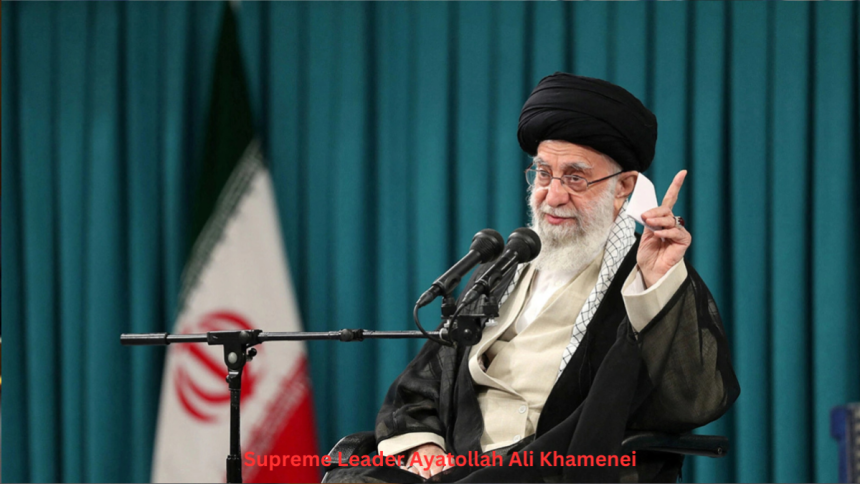November 19, 2024 — The question of succession in Iran has taken center stage following reports that Mojtaba Khamenei, the second son of Supreme Leader Ayatollah Ali Khamenei, has been secretly appointed as his father’s successor. This revelation, first reported by the independent Persian-language newspaper Iran International, highlights the growing urgency within the Islamic Republic’s leadership to address the future of power amid Ayatollah Khamenei’s advancing age and declining health.
A Nation at a Crossroads
At 85 years old, Supreme Leader Ayatollah Ali Khamenei remains the most powerful figure in Iran. However, health challenges, including a long battle with cancer and partial paralysis from a 1981 assassination attempt, have fueled persistent rumors about his ability to govern. Despite recent televised appearances dispelling claims that he is comatose, the Supreme Leader’s twilight years have reignited debate over who will succeed him.
Rumors and Succession Scenarios
The reported appointment of Mojtaba Khamenei by the Assembly of Experts has sparked speculation across Iran and beyond. While these reports remain unconfirmed, they align with long-standing rumors that Ayatollah Khamenei has been grooming his son for leadership.
Succession in the Islamic Republic has always been a critical issue. The only prior transition occurred in 1989 when Grand Ayatollah Ruhollah Khomeini’s death led to Khamenei’s rise. Unlike Khomeini, who was universally respected for his religious authority, Khamenei was a compromise choice—a leader chosen for his lack of strong factional ties.
Now, history may repeat itself, but with a more polarizing figure at the center. Mojtaba’s rise is seen by critics as a departure from the ideals of meritocracy that the Islamic Republic once claimed to uphold.
The Legacy of Ayatollah Ali Khamenei
Khamenei’s leadership, spanning over three decades, has been defined by his ability to consolidate power and marginalize rivals. Early skepticism about his capabilities gave way to an era of dominance as he replaced Khomeini’s allies with loyalists and amassed an economic empire valued at over $100 billion.
Through his control of key institutions, including the Islamic Revolutionary Guard Corps (IRGC), Khamenei has ensured his regime’s survival against internal dissent and external pressures.
Mojtaba Khamenei: The Controversial Heir
Mojtaba Khamenei’s potential succession has sparked intense debate within and beyond Iran. Critics argue that the move would transform the Islamic Republic’s system of governance into a de facto monarchy, contradicting its founding principles of meritocracy and clerical rule.
Unlike his father, Mojtaba lacks significant religious standing. While Ayatollah Khamenei’s credentials were questioned during his appointment, Mojtaba’s are considered even weaker, with many grand ayatollahs and clerics dismissing his qualifications.
Yet, Mojtaba wields considerable influence behind the scenes. As his father’s de facto chief of staff, he has played a pivotal role in shaping key policies. His close ties to the IRGC further bolster his position, as the organization seeks a leader who aligns with its interests and ensures the continuity of its economic and political power.
The Islamic Revolutionary Guard Corps’s Function
The IRGC, which controls nearly 40% of Iran’s economy, is a crucial player in the succession process. Analysts suggest that the IRGC may favor Mojtaba as a figurehead, enabling them to exert greater control over Iran’s governance.
“The IRGC doesn’t necessarily want a military dictatorship, but it does want to preserve its dominance,” said a Tehran-based analyst. “Mojtaba’s relative weakness in religious circles could make him the perfect candidate for this arrangement.”
Public and International Reactions
The idea of Mojtaba Khamenei’s succession has been met with skepticism and resistance from various quarters. Domestically, many Iranians view the prospect as a betrayal of the revolution’s ideals, fearing it would cement a dynastic system. Clerical opposition also looms, as many ayatollahs question Mojtaba’s legitimacy.
Internationally, the news has raised concerns about regional stability. Observers warn that a leadership transition could embolden hardliners within the regime, potentially escalating tensions with adversaries like Israel and the United States. Conversely, a succession crisis could create opportunities for Iran’s opponents to exploit internal divisions.
Potential Outcomes and Implications
Mojtaba Khamenei’s appointment has significant ramifications:
- Strengthened IRGC Control:
With Mojtaba as a compliant figurehead, the IRGC could solidify its grip on Iran’s political and economic systems. - Increased Instability:
Opposition to Mojtaba’s leadership, both from within the regime and among the broader populace, could lead to heightened unrest and power struggles. - Risk of a Power Vacuum:
Should Ayatollah Khamenei and Mojtaba die or become incapacitated in quick succession, the Assembly of Experts could struggle to find a unifying candidate, potentially destabilizing the regime.
A Precarious Future
The reported appointment of Mojtaba Khamenei as the next supreme leader marks a pivotal moment in Iran’s history. As Ayatollah Khamenei’s tenure approaches its end, the stakes could not be higher. Will this transition fortify the Islamic Republic, or will it expose irreparable cracks in its foundation?
For now, the future of Iran remains uncertain, with Mojtaba’s potential succession setting the stage for what could be one of the most significant power shifts in the Middle East in decades.
I am Azzam Ameen, a news journalist based in Colombo, Sri Lanka, with extensive experience in covering significant national and international events. My work focuses on delivering accurate and insightful news that resonates with audiences. Over the years, I have reported on a variety of critical issues, including political developments, social changes, and global affairs. I am committed to providing in-depth analysis and ensuring that every story I cover is both factual and impactful. Stay connected with me on Facebook, Twitter, Instagram, Tiktok etc.
